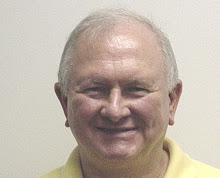At our last juncture, we discussed term insurance, which is the cheapest form of temporary insurance. It is designed to provide for the family in the event of an untimely death before assets can be accumulated. The idea with term insurance is to have a target amount of money that you will have accumulated to provide for the family. Once that target is reached, you would not need the insurance. That target date might be one year, five years, ten or twenty years ahead. The further you have to plan, the more expensive the term insurance becomes (Remember the $27,925 premium at age 70?). Our 23 year old hero from last time could purchase a one million dollar term policy for about $1,510 a year. Based on the tables, he could continue that premium with little increase for about 15 years.
For any business to remain viable, the amount of income must at least equal the amount of expenses. If income is greater than expense, we have profit. If income is less than expense, we have loss. Continue the loss and eventually the company (or household) goes bankrupt. Once the company is bankrupt (as we said before), nobody wins because the claims cannot be paid. Ignoring a whole lot of complicating factors, we can examine what a NO LOSS premium would be for various types of life insurance. [Cash in] = [policyholders] * [premiums]. [Cash out] = [deaths] * [face amount]. Again, if we make all the policies for the same face amount, we can calculate the required premium by setting cash in equal to cash out.
(1) [policyholders]*[premiums]=[deaths]*[faceAmount]
For large numbers of policyholders, the actuarial tables can predict the average number of deaths expected by multiplying the probability of death times the number of policy holders. So equation (1) becomes
(2) [policyholders]*[premiums]=[probability]*policyholders]*[faceAmount]
Dividing the policy holders from both sides we get:
(3) [premiums]=[probability]*[faceAmount]
That is where I got the numbers for the one year term discussion.
The math gets a little more complicated when we look beyond one year, but the concepts are fairly simple. Since only the living can be counted on to pay the premiums, equation (1) becomes
(4) [survivors]*[premiums]*[years]=[deaths]*[faceAmount], which reduces to
(5) [premiums] = ([deaths]*[faceAmount])/([survivors]*[years])
The actuarial tables provide a column of survivors from an original 100,000 population. Looking at the male age 23 column, we see that there are 98,057 survivors. Ten years later, there are 96,663 survivors. In that time, 1394 people died and the company would have paid out $1,000,000 to each death. The 96,663 survivors would have paid the required premiums for ten years. The required premium, then is
[premiums] = (1,394*!,000,000) / (96,663*10) = $1,394,000,000 / 966,630 = $1,442.12
Notice that this premium is actually lower than the initial one-year term premium because of the reduced mortality expectations from age 23 to age 32. It is not until the male reaches 33 that the probability of death exceeds that at 23. You can do the math for ten year level term for a 40 year old and see a big difference. 91,985 survivors would pay premiums for ten years to cover 3,465 deaths.
[premiums] = (3,465 * $1,000,000) / (91,985,*,10) = $3,766.92
Here the premium is larger than the one-year term at 40 ($2,436) but less than the one-year term at 50 ($5,730) because of the increasing mortality. Stay tuned.
